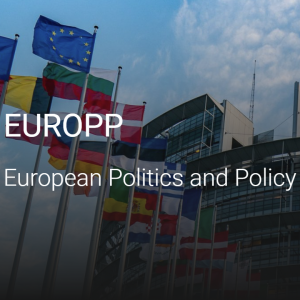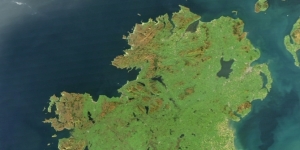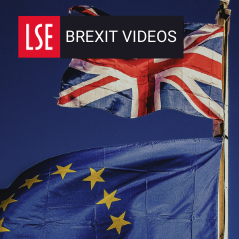[addtoany]
The closing weeks of the referendum campaign, Frank Vibert and Gunnar Beck write, are
“as far as [they] could be from the ideal world of reasoned discourse, described by the American political philosopher John Rawls as ‘reflective equilibrium’.”
But we can still try, right?
In that spirit, we’ve taken a look at some of the most interesting pieces LSE BrexitVote has published since we launched in October.

The viral hit
Nicholas Barr’s Letter to friends: why I will vote Remain in the referendum has been read more than 350,000 times and shared extensively on Facebook.
Alan Sked explains why he is a Eurosceptic
In this four-part series, accompanied by a piece on sovereignty, Ukip’s original founder Alan Sked – though he has long since distanced himself from the party’s current incarnation – offers an in-depth history of the EU project from a Eurosceptic perspective. Start with part one: a superstate in the making.
Migration: the issue that may decide the referendum
When it comes to migration, voters’ concerns tend to fall into three categories.
The first is about freedom of movement. What impact has the arrival of the approximately three million EU citizens who were living in the UK in 2014 had? The LSE’s Centre for Economic Performance released a report analysing whether wages have fallen as a result, and whether EU migrants are a net benefit to the UK economy. Heather Rolfe reports on research into why employers hire EU migrants. The EU Migrant Worker Project team explain why enforcing the minimum wage matters even more than usual in a high-migration economy. And Richard Johnson argues that Labour shouldn’t be the champion of freedom of movement because poorer communities have shouldered the burden of migration. Meanwhile, Chris Bickerton says Brexit would enable Britain to decide how many migrants it should admit – and from where. Why not open our borders to non-EU workers?
The second concern relates to Turkey. When will it join the EU and will its citizens be allowed to travel here without visas? Adam Lazowski says the EU will probably not expand at all in the next decade. If and when it does, transitional arrangements mean the UK labour market would remain closed to new EU citizens for a long time.

Thirdly, the EU’s handling of the migrant crisis has come under scrutiny. On this issue, Macro Scipioni and Paula Hoffmeyer-Zlotnik conclude there would be no clear benefit to Britain from leaving the EU – indeed, the contrary.
Economics: the ‘£350m’ question
Why has Vote Leave’s claim that Britain pays £350m a week to the EU caused so much controversy? Iain Begg explains how the UK’s rebate works. You can also read the LSE CEP’s verdict on the Treasury prediction that GDP could fall by 6.2% if we leave.
Then there’s the question of trade. Would Britain be able to negotiate favourable deals in the event of a Brexit? Ruth Lea argues we would. Steve Woolcock says otherwise, and explains why non-tariff barriers are so important to the debate. What’s more, argues Simon Hix, an EU without Britain in it is likely to become more regulated and therefore harder to sell to. The FT’s Giles Wilkes questions the fundamental premise of the Economists for Brexit (like Patrick Minford, here): broadening the market is a fundamental good and shrinking it is a barrier to trade.
Then there’s fish.
Lexit
The Labour leader backs Remain (with reservations), but some on the left have made a powerful case for ‘Lexit’: Richard Johnson and Lee Jones challenge the EU’s ‘neoliberal orthodoxy’ and, in particular, the argument that it helps protect the rights of the worst-off.
The NHS

Vote Leave says money from the EU budget could be spent on the NHS, which now has to treat large numbers of EU migrants; Stronger In contends the NHS needs staff from the EU. A team from the LSE have analysed the arguments on both sides. Some argue that the Transatlantic Trade and Investment Partnership would damage the NHS: Gabriel Siles-Brugge thinks voting to Leave would not necessarily protect the health service from its effects.
Britain’s influence in the world
Barack Obama was criticised by Boris Johnson for his intervention in the debate. But Tim Oliver argues he was right to repeat his opposition to Brexit. Ex-diplomat Brian Crowe gives an insight into how British ‘soft power’ and our relationship with Nato would be affected and Karen E Smith explores our influence at the UN.
The democratic deficit (see also ‘sovereignty’)
For some, like Alan Sked, EU membership takes away national sovereignty. For others, it gives us more power and agency than we would otherwise enjoy. Sara Hagemann and Sara Hobolt suggest that leaving the EU could mean that Parliament actually has less say in the agreements we negotiate with the rest of the world.
The trouble with referenda
Referenda are a relatively novel phenomenon for the British, but not so elsewhere. Jim Bjork looks at their history in Europe and concludes they are as much about national interest as about identity, while Kevin Featherstone finds similarities between this campaign and Greece’s 2015 referendum. Jan Zielonka explains why they can be so problematic and Jonathan Portes reveals what the Condorcet paradox tells us about this one.
The referendum debate encompasses hundreds of other themes that we can’t hope to include here. But you can watch LSE academics discussing dozens of them on the LSE’s #LSEBrexitVote YouTube channel. We also ran expert hearings into eleven key areas, and you can read the findings in our report.
[addtoany]









